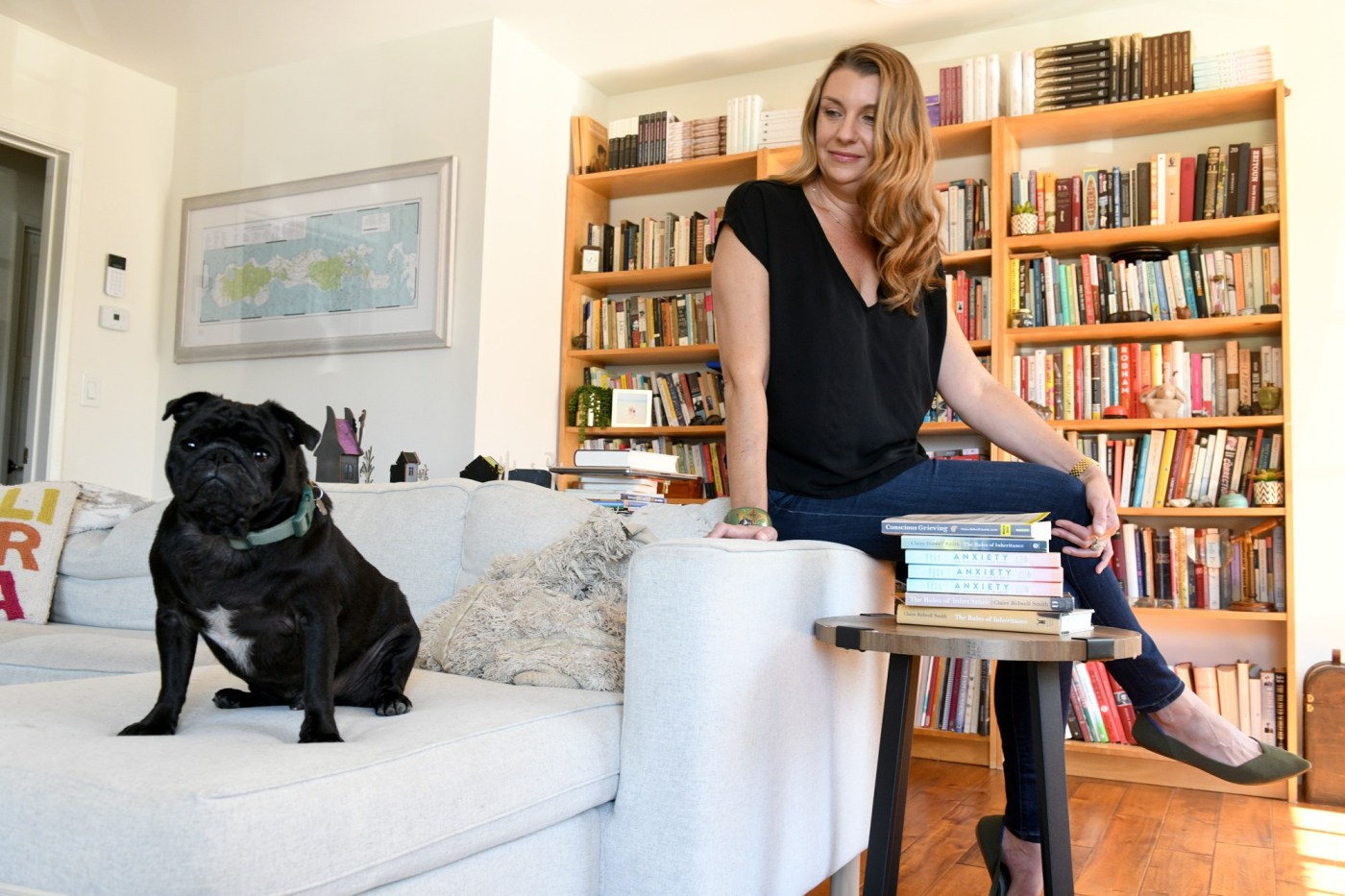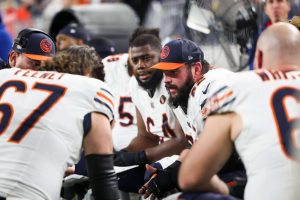
This grief therapist draws on her own experience with loss to help others
Claire Bidwell Smith is no stranger to grief. She lost both of her parents to cancer at a young age — her mother when she was 18, and her father when she was 25.
“I entered into my adult life with a lot of grief and was just trying to figure out everything that had happened to me. After my mom died, everybody was like ‘You’ll be fine. You’re an adult, just go forward into your life.’ And I wasn’t fine. It was really, really hard.”
While struggling with anxiety and grief in her 20s, Smith also stoked her passion for writing.
“I’ve always been a writer. I worked for magazines and newspapers, and wanted to write books someday. But my parents’ deaths skewed me into a different direction. When I began to come through it, I ended up getting my master’s degree in clinical psychology.”
Based in Santa Monica, Smith initially worked in hospice before starting a private practice as a grief therapist, now facilitating online grief support groups and in-person retreats. And she never stopped writing. Smith has published three nonfiction books about grief; her new book, “Conscious Grieving,” comes out in March 2024.
Where did the idea of conscious grieving come from?
The idea behind conscious grieving is about leaning into grief, embracing it, really working with it. It’s something that we all go through, we will all experience grief and loss — we do throughout our lifetimes, whether it’s for moves, divorces, illnesses, pandemics, loss of people, pets. And when we can lean into it and learn from it, I think we can really grow from it. The problem is we resist it, because it’s hard. But when we can work with it, I think a lot of transformation is possible.
Why did you decide to write “Conscious Grieving”?
“Conscious Grieving” is like the synthesis of everything I’ve learned about grief. And it has been hard-won, because we live in a grief-illiterate society. When I was younger, and going through it myself, I had to piece a lot of things together, undoing a lot of messages I received. I had a lot of trauma from my parents being sick all through my high school years; their losses were huge. And I had to work to understand my own grief process and heal from it. But then, as I began to work with others, I saw grief in such a big three-dimensional way that I hadn’t understood. I’ve written about pieces of the grief journey in my other books; the afterlife, anxiety, my own story.
You mentioned a “grief-illiterate society.” How does the way we deal with grief as a society differ from other cultures?
We don’t honor it as much as other cultures. And we don’t respect people’s time and space around loss as much. We have a lot of toxic positivity in this country, which I think lends to people being like, “Oh, you’re okay, could be worse.” Well no, let’s just validate and honor that this person is grieving.
With that in mind, what is the best way to support someone who is grieving?
I like to say if we’re grief-illiterate, let’s try to be grief-curious instead. Meet that person with some kind of curiosity, with an openness to listen and to hold space for what they’re going through. We can’t know. Often, people trip up when they’re around somebody who’s grieving because they’re worried they’re going to say the wrong thing. But then they end up not saying anything at all, which I think is more hurtful. And so just show up and hold that space. It’s a hard space to hold, because it’s painful for us. We like to fix things for people and grief is not something we can fix.
What is one of the most surprising things about grief that you have discovered?
I think grief can really be transformative, like in a beautiful way. There’s this idea of post-traumatic growth, and I think there’s something similar within grief. There’s a growth that happens. It takes a while to get there. But grief asks so much of us, it asks us to really evaluate what matters. What’s meaningful to us? What people do we want in our lives? What kind of life do we want to live? Because so much doesn’t matter after we lose one of our most important people. And there’s this amazing opportunity to live a more meaningful life than you ever did before, in light of that loss.
More ‘Vitality Now’
7 things I’ve learned about how to live happily in retirement
12 things to help you find community and combat loneliness
What some caregivers have learned caring for ill loved ones
Here’s help for deciding who should make end-of-life healthcare decisions
Read more ‘Vitality Now ’
More SCNG Premium content


